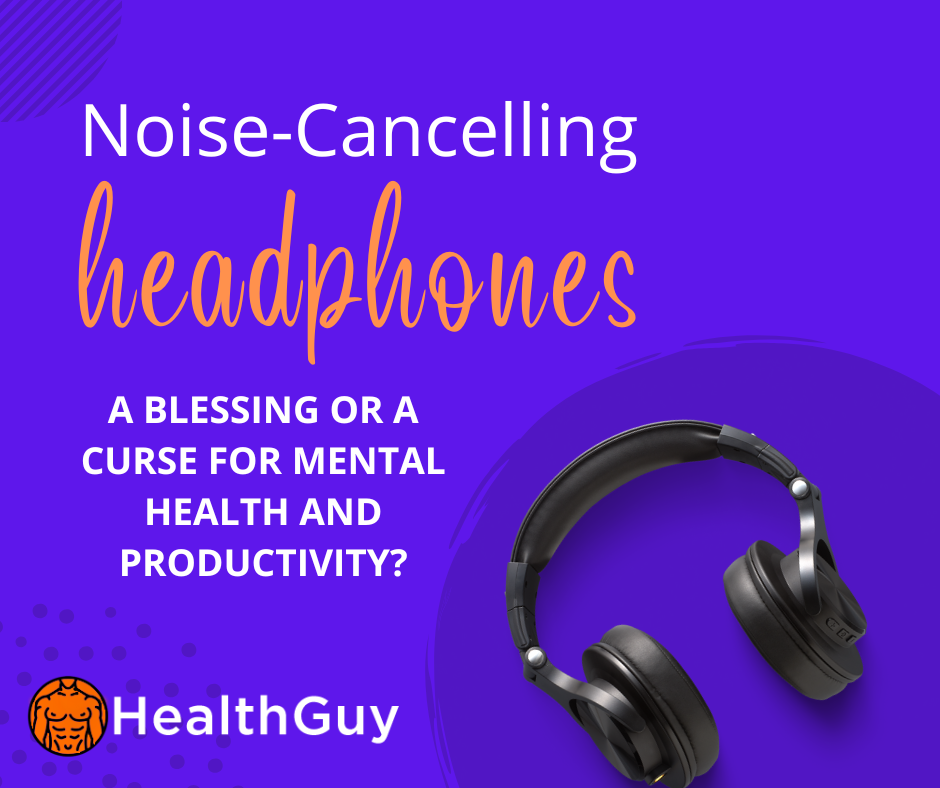
Noise-Cancelling Headphones: A Blessing or a Curse for Mental Health and Productivity?
Noise-cancelling headphones have become increasingly popular in recent years, with more and more people using them to block out the sounds of their surroundings and improve their focus and productivity. However, there are concerns that this technology may have a negative impact on mental health and productivity in the long run. In this article, we will explore the impact of noise-cancelling headphones on mental health and productivity and discuss some of the potential benefits and drawbacks of using this technology.
What are Noise-Cancelling Headphones?
Noise-cancelling headphones are a type of technology that uses active noise control to reduce unwanted sounds in the environment. It works by using a microphone to pick up external sounds and then generating a sound wave that is the opposite of the unwanted sound. The two sound waves cancel each other out, effectively reducing the overall noise level in the environment.
Benefits of Noise-Cancelling Headphones
One of the most significant benefits of noise-cancelling headphones is their ability to reduce distractions in the environment, allowing individuals to focus more effectively on their work. This can be particularly beneficial in noisy work environments, such as open-plan offices, where the noise level can be high and distracting.
Another potential benefit of noise-cancelling technology is its ability to reduce stress and improve mental health. Studies have shown that exposure to high levels of noise can lead to increased levels of stress, which can have a negative impact on mental health. By reducing the overall noise level in the environment, noise-cancelling technology may help to alleviate some of this stress and improve overall mental well-being.
Drawbacks of Noise-Cancelling Headphones
While noise-cancelling headphones have many potential benefits, it also has some drawbacks that need to be considered. One of the most significant drawbacks is the potential for over-reliance on technology. By using noise-cancelling headphones, individuals may become accustomed to working in a completely silent environment, making it difficult to concentrate on tasks when they are in a noisy environment without the technology.
Another potential drawback of noise-cancelling headphones is the potential for them to lead to social isolation. By blocking out external sounds, individuals may become less aware of their surroundings, making it more difficult to engage with others and form social connections.
Impact on Productivity
The impact of noise-cancelling headphones on productivity is somewhat mixed. While headphones can help to reduce distractions and improve focus, they can also lead to a sense of isolation and reduce the ability to work effectively in noisy environments without headphones. Additionally, research has shown that the most effective way to improve productivity is to create a work environment that is tailored to the individual’s specific needs, rather than relying on technology to do the work.
Impact on Mental Health
The impact of noise-cancelling headphones on mental health is also mixed. While headphones can help to reduce stress and improve overall mental well-being, they can also lead to social isolation and an over-reliance on headphones. Additionally, research has shown that exposure to some levels of noise can be beneficial for mental health, and that complete silence may not be the best solution for everyone.
Conclusion
In conclusion, noise-cancelling headphones have the potential to provide many benefits, including reducing distractions and stress in the environment. However, it also has some drawbacks, including the potential for over-reliance and social isolation. When using these headphones, it is essential to consider both the potential benefits and drawbacks and to use them in a way that is tailored to the individual’s specific needs. By doing so, individuals can enjoy the benefits of noise-cancelling technology while minimizing any potential negative impact on their mental health and productivity.
